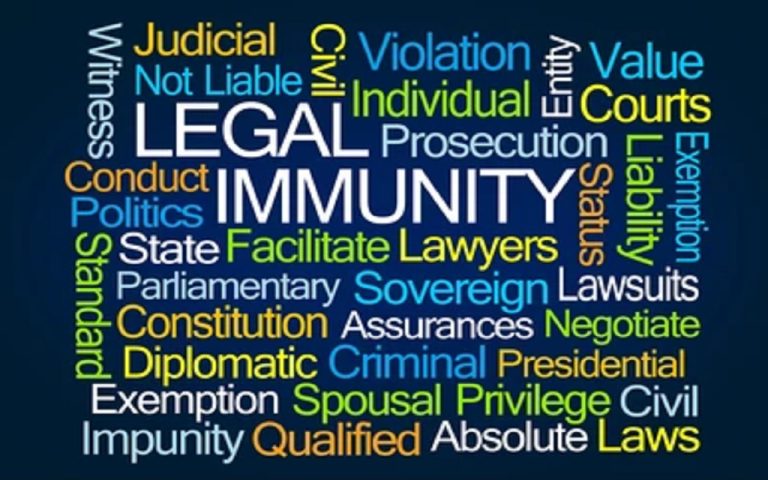The real estate industry faces legal challenges, and the 72 Sold lawsuit has received widespread attention. It centers on allegations, rebuttals, and legal issues that affect customers, real estate brokers, and the business itself. What is a 72 72-sold lawsuit, and how does a 72-sold lawsuit respond? Here is all the information you need to comprehend the main points of this lawsuit and its potential outcomes on real estate.
What is 72 Sold Lawsuit?
The 72 Sold lawsuit offers an innovative approach to selling homes quickly. According to the company, it gives sellers a quick and lucrative substitute for conventional real estate techniques. The program offers homeowners who want to sell within a specific time frame an enticing alternative by streamlining the selling process. Despite its unique model, legal problems led to the lawsuit.
72 Sold: A Fast-Track Home Selling Option, But Is It Right for You?
72SOLD is a real estate company that promises to sell your home in just eight days. Its strategy focuses on creating urgency by training agents to push buyers into quick tours and fast offers.
In theory, this can lead to multiple offers or even bidding wars. While it works well in hot markets, it does not guarantee a quick sale or a higher price. It’s not much different from any skilled realtor who knows how to market a home aggressively.
If speed is your priority, consider comparing offers from top cash buyers. Services like Clever Offers let you receive competing bids from investors and iBuyers or list your home for seven days to attract cash buyers.
If you prefer a traditional sale, a low-commission real estate company can help you sell on your timeline while saving money. Exploring multiple options will help you find the best fit for your needs.
Read Also: The Prodigy Promos Lawsuit: What You Need to Know
How 72 Sold Lawsuit Works?
The company took a different approach than most real estate transactions. 72 Sold created a rapid process to sell homes instead of depending on traditional techniques like posting properties on multiple listing services (MLS) and hosting open houses. This model included professional photography, focused advertising campaigns, and a strict deadline for closing deals.
Many homeowners could not resist the lure of a hassle-free, speedy sale. The company’s ads regularly highlighted the advantages of skipping drawn-out showings and haggling, positioning 72 Sold as the best option for people who needed to sell quickly. Eventually, however, the audacious claims and forceful marketing strategies came under investigation.
Why Did the 72-Sold Lawsuit Arise?
The lawsuit primarily questions 72 Sold’s business practices and promotional methods. According to the allegations, the business used misleading advertising and fell short of some of its seller commitments. The plaintiffs contend that homeowners suffered losses due to the marketing campaigns’ false representations of the program’s effectiveness and profitability.
The case involves allegations of:
- Misleading claims about home sale success rates
- Overstated promises on closing timeframes and profits
- Advertising that allegedly does not match actual results
These issues form the lawsuit’s basis, with plaintiffs seeking compensation for perceived losses.
Who Filed the 72 Sold?
A group of homeowners initiated the lawsuit against 72 Sold. Represented by various legal firms, these individuals claim they experienced significant losses due to alleged misrepresentations. Their legal representation argues that 72 Sold’s business model benefited the company at the expense of sellers.
How is 72 Sold Lawsuit Responding?
72 Sold has denied all allegations. The company asserts that its advertising and sales practices comply with real estate regulations. In response to the lawsuit, 72 Sold argues that its model is straightforward and delivers on promises. It also claims that many clients have achieved successful sales through the program, refuting claims of systematic deception.
Key Legal Points in the Case
The lawsuit highlights several critical legal issues:
- Truth in Advertising: This case questions how far companies can go in marketing before crossing into deceptive territory. Legal scrutiny centers on the accuracy of 72 Sold’s promotional materials.
- Contractual Obligations: Plaintiffs argue that 72 Sold did not fulfill specific contractual promises related to sale timelines and profits. This aspect of the case examines if legal grounds exist for breach of contract.
- Consumer Protection: Consumer protection laws aim to stop businesses from deceiving customers. The lawsuit tests the strength of these laws in real estate, with plaintiffs alleging consumer rights violations.
Potential Impact on Real Estate Practices
The outcome in this case might establish precedents in the real estate sector. If the plaintiffs are successful, real estate firms might be subject to stricter limitations on advertising claims. This case emphasizes how crucial honest advertising and open business practices are. It might be necessary for real estate agents to update their marketing plans to conform to consumer protection regulations fully.
The Role of Real Estate Agents
Real estate agents are at the center of the 72SOLD controversy. Some complaints in the lawsuit claim that agents pressured sellers into contracts that didn’t serve their best interests. Homeowners argue that the program prioritizes speed over fair pricing, leaving many feeling shortchanged.
Legal Battles and Ongoing Developments
Since the 72SOLD lawsuit was filed, the legal fight has only intensified. Both sides are battling it out in court, with some pushing for significant reforms to the program. There are growing demands for stricter advertising rules and compensation for misled homeowners.
Regulators have also taken notice. Authorities are now investigating whether 72SOLD violated consumer protection laws. If found guilty, the company could face hefty fines and new restrictions on its operations.
Is 72SOLD Legit?
Yes, 72SOLD is a real estate company. It was founded in 2018 by businessman and attorney Greg Hague and is based in Scottsdale, Arizona. The program is available nationwide and has grown fast, multiple times, earning a spot on Inc.’s list of the 5,000 fastest-growing companies.
72SOLD also works with Keller Williams, giving its agents access to the program. But in 2023, the company got caught up in legal trouble. It was named in a lawsuit alongside former Keller Williams co-founder Gary Keller. The lawsuit accused Keller of embezzling funds and pressuring agents to promote businesses he had a financial stake in—including 72SOLD, where he owns 49%.
What’s Next in the 72 Sold?
The case is still in progress, and developments will unfold as each side presents evidence. Legal experts predict a detailed examination of 72 Sold’s marketing materials and client contracts. If the case proceeds to trial, it could change how real estate companies structure and promote their services. Updates from the court may provide further insights, making it essential to stay informed about the ongoing proceedings.
Conclusion
The 72 Sold lawsuit emphasizes the importance of precise real estate advertisements. This case has important lessons for both homeowners and real estate firms. By keeping up with developments, sellers and agents can better negotiate the complicated world of real estate marketing and client expectations.
Frequently Asked Question(s)
What is the 72 Sold lawsuit about?
The 72 Sold centers on claims of deceptive advertising and business practices. Plaintiffs argue that 72 Sold misrepresented their home-selling program’s profitability and speed, leading to some sellers’ financial losses. The lawsuit examines whether 72 Sold’s advertising complied with real estate regulations and consumer protection laws.
Who filed the lawsuit against 72 Sold?
Homeowners who used the 72 Sold program filed the lawsuit. These plaintiffs claim they suffered losses due to misleading marketing practices and have taken legal action to seek compensation. The case includes homeowners represented by various law firms experienced in consumer protection.
How has 72 Sold responded to the lawsuit?
72 Sold denies the allegations and maintains that its advertising practices are legal and transparent. The company claims many clients achieved successful home sales through their program and insists that their business model offers a fair alternative to traditional real estate methods.
Could the 72 Sold affect real estate marketing practices?
If the plaintiffs succeed, the lawsuit may lead to stricter guidelines for real estate advertising. Companies may face new regulations requiring increased transparency in promotional claims, which could impact how real estate services are marketed.



